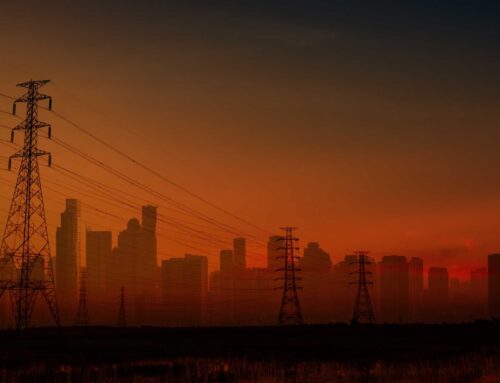Renewables won’t save us from climate catastrophe, experts warn; what will?
January 5, 2025
Renewables won’t save us from climate catastrophe, experts warn; what will? – theOrcasonian.com
Skip to content
||| FROM MONGABAY.COM |||
- Demand for renewable energy, particularly solar panels, is growing at an exponential rate. But the shift to solar, wind, EVs and other sustainable tech solutions has sparked an environmentally destructive mining boom and is itself carbon intensive.
- And even as renewables boom, we’re burning more fossil fuels than ever, setting another record for emissions in 2023. So it appears high tech alone can’t save the world from catastrophic climate change; only massive cuts in fossil fuels can do that, say experts. But even addressing the climate change planetary boundary isn’t enough.
- Five other planetary boundaries are in the danger zone, though solutions exist to reverse these negative environmental trends, say analysts. But for those solutions to happen, governments must shift trillions of dollars in “perverse subsidies” (that support fossil fuels and do environmental harm) to renewable energy.
- Without real, drastic, decisive action now, the sixth great mass extinction could be unstoppable and doom modern life as we know it. Still, there’s another way forward: Learn from Indigenous cultures, with their willingness and ability to integrate into the biosphere, and to humbly turn away from greed and overconsumption.
In 2022, U.N. Secretary-General António Guterres declared that the “lifeline of renewable energy can steer [the] world out of climate crisis.” In saying so, he echoed a popular and tantalizing idea: that, if we hurry, we can erase the climate emergency with widespread adoption of renewables in the form of solar panels, wind farms, electric vehicles and more.
But things aren’t that simple, and analysts increasingly question the naïve assumption that renewables are a silver bullet.
That’s partly because the rapid transition to a global energy and transport system powered by clean energy brings with it a host of new (and old) environmental problems. To begin with, stepping up solar, wind and EV production requires many more minerals and materials in the short term than do their already well-established fossil fuel counterparts, while also creating a major carbon footprint.
Also, the quicker we transition away from fossil fuel tech to renewable tech, the greater the quantity of materials needed up front, and the higher the immediate carbon and numerous other environmental costs. But this shift is now happening extremely rapidly, as companies, governments and consumers try to turn away from oil, coal and natural gas.
“Renewables are moving faster than national governments can set targets,” declared International Energy Agency executive director Fatih Birol. In its “Renewables 2024” report, the IEA estimates the world will add more than 5,500 gigawatts of renewable energy capacity between 2024 and 2030 — almost three times the increase between 2017 and 2023.
But this triumph hasn’t brought with it a simultaneous slashing in global emissions, as hoped. In fact, 2023 saw humanity’s biggest annual carbon releases ever, totaling 37.4 billion metric tons, which has led experts to ask: What’s going on?
**If you are reading theOrcasonian for free, thank your fellow islanders. If you would like to support theOrcasonian CLICK HERE to set your modestly-priced, voluntary subscription. Otherwise, no worries; we’re happy to share with you.**
Search
RECENT PRESS RELEASES
Related Post






